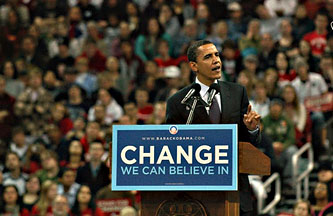 Bernard Avishai on the election in Massachusetts:
Bernard Avishai on the election in Massachusetts:
The “undecideds” in South Boston and working class suburbs like Lynn don’t like Cambridge and Back Bay, but they respect its winners, when they act like winners….They smell insincerity a mile away. I wish I had a bluefish dinner for every time Coakley referred to the health package as “not perfect.” It all came out so forced and fake.
The real question Democrats have to ask themselves is: how come the greatest piece of social legislation since Medicare is something a progressive Democratic candidate for Ted Kennedy’s seat has to speak so defensively about?
And we can look no further than Howard Dean, and MSNBC, and Arianna Huffington, and, yes, some columnists at the Times and bloggers here at TPM — you know, real progressives — who have lambasted Obama again and again since last March over arguable need-to-haves like the “public option,” as if nobody else was listening. They’ve been thinking: “Oh, if only we ran things, how much more subtle would the legislation be,” as if 41 senators add up to subtle. Meanwhile the undecideds are thinking: “Hell, if his own people think he’s a sell-out and jerk, why should we support this?”
The frustration on the left with Obama — and with healthcare reform specifically — was almost inevitable. During the campaign, a lot of people chose to see in him what they wanted to see, pushing to the back of their minds not just the obvious signs that Obama has always been a cautious, practical politician, but also the obvious compromises and pressures that are forced onto any president. It was a recipe for disappointment. The striking thing to me, though, is how fast the left has turned on him. Conservatives gave Bush five or six years before they really turned on him, and even then they revolted more against the Republican establishment than against Bush himself. But the left? It took about ten months. And the depth of the revolt against Obama has been striking too. As near as I can tell, there’s a small but significant minority who are so enraged that they’d be perfectly happy to see his presidency destroyed as a kind of warning to future Democrats. It’s extraordinarily self-destructive behavior — and typically liberal, unfortunately. Just ask LBJ, Jimmy Carter, and Bill Clinton. And then ask them whether liberal revolt, in the end, strengthened liberalism or conservatism.
I’ve got all sorts of complaints about Obama. He’s been weaker on civil liberties than I’d like. His approach to bank regulation has been far too friendly to financial interests. I’m not thrilled with his escalation in Afghanistan. He hasn’t moved as quickly on gay rights as I hoped. And he hasn’t used the bully pulpit nearly as effectively as I think he’s capable of. He could afford to attack obstructionism and conservative retrenchment far more directly than he has.
Still, none of that comes within light years of providing a reason to turn on him. The national security community has tremendous influence; the financial lobby has a stranglehold on Congress; Obama told us explicitly during the campaign that he planned to escalate in Afghanistan; his caution on gay rights is quite likely smart politically; and he certainly gave us fair warning about his dedication to reaching across the aisle and trying to work with Republicans. The fact that they’ve spent his entire first year in a raging temper tantrum is hardly his fault. Given the cards he was dealt, he hasn’t done badly. I think Andrew Sullivan — writing in his Dr. Jekyll persona — gets it about right here.















